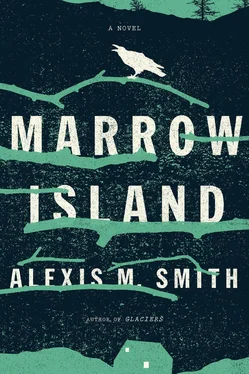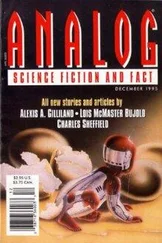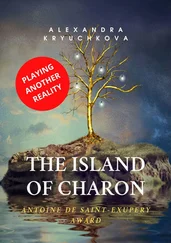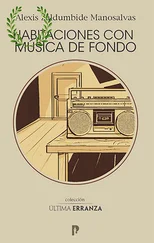I drove the grassy, rutted track to the place where asphalt appeared out of nowhere. Then three-quarters of a mile on, at the site of an aborted housing development, I pulled off the road into a weedy patch of gravel. All along the road ahead, between stands of taller trees, were more of the same weedy, treeless spaces: parcels of land, marked and cleared, foundations poured and abandoned, now overgrown with vetch and fireweed.
I parked in what would have been a driveway. There were cans and cigarette butts strewn about the gravel. A potato chip bag in the tall grass. Unimaginative graffiti all over the walls. Half a dozen gangly adolescent red alders stood around the rocky floor like derelicts. Alders take root like this after disturbances to the ecosystem. For generations after logging and fires and other disruptions, the swift and the adaptable take over, not letting a spare inch of earth go to waste. Like the local teenagers who clambered through the nettles to scrawl their secret names into the cement, the alders were opportunists. A couple of the trees even sprouted from cracks in the bottom corners, reaching up to touch the tagged walls. I could almost see spray-paint canisters at the ends of their skinny branches.
I walked around the foundation, found the place where the cement had caved enough to create a few steps — the way in. I stretched one leg down into the space and drew it back. I didn’t want to climb down. I knew how the crack came to be there. If you looked closely enough at me, you would find cracks from the same day, the same hour. Minute fissures in my bones. A few half-connected pathways in my brain.
May 1, 1993, was warm, with a taste of summer in the air. The primroses and hyacinth and daphne were blooming. Chartreuse tree tips and pink blossoms. Sunshine on water. All the water: the lakes and rivers and canals; and Puget Sound, the Salish Sea. After weeks of rain, people on the streets of cities and towns in the region were cheerfully stupefied by the glare.
At 9:09 a.m. the ambient noise of the cities and suburbs and seaside towns went mute. A barely recognizable shift, like how the air softens just before a lightning storm. This was the moment when pets became perturbed, barked or squawked or fled under beds. Then almost before registering the difference, there was a rumbling that at first sounded like faraway thunder, then felt like a truck barreling by, then a train coming head-on. Then everything not bolted to the walls, and some things that were, fell. Books off shelves and dishes out of cupboards, food out of refrigerators and art off walls. Lamps, chairs, televisions, toppled. It was loud, not just the city tumbling, but the earth itself. Louder and louder because the sensitive bones of the inner ear register both movement and sound. The ground was rippling, rolling. Witnesses in downtown Seattle described the skyscrapers of the skyline as “doing the wave” like fans at a Mariners game. As the shaking continued, doors fell off hinges when their wood splintered. Foundations cracked and sunk, and houses clattered free of their supposedly solid bases. Streets split like stretched fabric, and parked cars rolled down hills. So many cars scraping and tumbling down the hills and into piles, into the sides of buildings. Bridges wobbled, weak-kneed, and drivers felt like a great wind was blowing across the road; they careened into guardrails and one another. Skyscrapers bowed, dropping whole gleaming pools of window to the ground below. People were in stairwells and doorways and under desks and in the aisles of grocery stores with cans and cleaning products and cereal all over them. Parents and nannies and teachers held children to their chests, covering their heads, practically suffocating them, the shaking going on and on — so much longer than they thought possible. Patrons of the Woodland Park Zoo held tight to the railings and clenched their eyes as the elephants trumpeted and the mother lion froze, crouched with her young, and let out a deep, uncanny yowl, and the polar bears, diving in their pool, clawed at the Plexiglas, wide-eyed, staring into the eyes of the people on the other side who fled as the glass crackled and droplets of water crept through.
All that time, while we cowered — nauseated, crying, waiting for the stillness — a slab of rock beneath the terranes of Puget Sound was shifting, slipping into the mantle of the North American plate along the South Whidbey Island Fault. Tremors were felt as far north as Juneau, Alaska, and as far south as Salinas, California. It was three minutes in which most of the West Coast of the United States and Canada braced itself.
“It’s the Big One,” we all thought, we all felt in our hearts. The one geologists had been warning us about for years, the one we had been preparing for at school with earthquake drills. There we were, the children of Puget Sound, under our desks, holding on to the legs as they scooted back and forth across the linoleum, doing what we had practiced. I became motion sick; others peed their pants or wailed for their moms.
Meanwhile, all those sparkling waters, displaced by the drop in the seafloor, were drawn back, away from their shores, leaning to the west, and even before the first aftershocks, like an unseen hand smoothing a tablecloth, the waters began their inevitable rush back into their basins. The ten-to-twenty-foot waves washed out waterfronts, sluicing up river deltas, pounding docks, houseboats, locks, bridges, grain and coal terminals, capsizing fishing boats, and scouring the decks of barges. Landslides along the rim of the bays caused more tsunamis, so that the thunder of water and the thunder of earth folded over each other, and our ears couldn’t distinguish which death might be coming for us.
Just over three thousand people died, but it wasn’t, in fact, the Big One. Three minutes and twelve seconds of a magnitude 7.9 quake. It was a relatively shallow quake, in one of the many tertiary faults within the Cascadia Subduction Zone. But the nature of the sound, with its cities built on wetlands around river deltas and in floodplains, created a sort of echo for the earth’s waves, a reverberation of the earth that amplified the shaking on the surface.
The story of the May Day Quake was told over and over again, in different ways, by different people. By scientists and engineers and first responders. By pilots and passengers of planes taxiing into SeaTac who witnessed it from the air. By survivors of the fires that broke out and survivors of boats and ferries capsized and survivors of collapsed bridges and tunnels. Like aftershocks, the stories. To retell it was to relive it. For years afterward, the quake was documented, analyzed, broadcast, and anthologized. I even wrote about it once, on the tenth anniversary, for the Sentinel , my college paper. By then, the May Day Quake had been consumed in the popular imagination and nearly forgotten, relegated to anecdote, the way Katrina would be a dozen years later. It hadn’t been the Big One, after all; there would be more stories to tell someday.
I turned my back to the foundation to look at the view. Through the trees across the street and down a rocky embankment was a drop to the strait, where the currents at tide change churned like water in a washing machine. Up the road were other abandoned parcels, barely visible driveways leading to vacant foundations, as if someone had plucked the houses right out of the ground, leaving cavities in the shape of living spaces. I could feel the house that wasn’t there, rising out of the gaping concrete mouth. The alders shivered in the breeze, a sound so familiar that I shivered, too.
Turning back to what was behind me — or not behind me — I did what most people in my generation do when faced with the ubiquitous and strange: I took pictures with my phone. Then I climbed back in my car, turned on Neko Case, and drove the rest of the cracked road into the village.
Читать дальше












